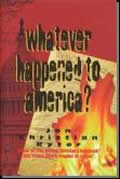Other
Ryter
Articles:
The Two Kerry's:
War Hero or
Traitor?
"Men in Black" The Cult of The Judges
CONOCO-PHILLIPS
TO BUY YUKOS GAS ARM
By Jon Christian Ryter
August 1, 2004
NewsWithViews.com
ExxonMobil would like nothing more than to pick up the oil leases of the troubled Russian oil giant, Yukos, at a going-out-of-business sale. One of the other Rockefeller-owned Seven Sisters oil giants, Conoco (which assumed Phillips 66 in the decade of oil company mergers) has become the successful bidder for Yuganskneftegas, the natural gas subsidiary of Yukos, the largest oil conglomerate in the former Soviet Union.
The announcement by the Russian government, which seized control of Yukos two years ago because its politically-active former CEO, Mikhail Khodorkovsky, was attempting to undermine the government of Vladimir Putin, that it was going to sell off Yuganskneftegas�which generates approximately 60% of thee revenue of the Russian oil giant�to some other state-owned company, or one that was loyal to the Kremlin was greeted with alarm by international investors, particularly J.P. Morgan-Fleming whose Russia Securities Fund was heavily vested in Yukos stock. Rumors started circulating last week that the Russian courts were going to put the gas subsidiary on the auction block to satisfy Yukos tax debt to the Russian government�for a paltry $1.75 billion dollars. Last summer DeGolyer & McNaughton appraised the value of Yukos at $43 billion, with Yuganskneftegas alone worth in excess of $3.4 billion.
Alvaras Abromavictus, the fund manager for East Capital, Oleg Biryulov who manages JP Morgan-Fleming, and Matthias West of Property Capital Management are all of the view that this move on the part of the Russian government will seriously damage the case for investing in Russia. It appears that Vladimir Putin has deliberately crushed Yukos to eliminate a political threat. Yukos shares sold last Friday at $6.80 a share, down 13.4%. Yukos could very likely end up a penny stock before it is bought, piecemeal, by Standard Oil's Seven Sisters. "Yukos, as Russia's major company and potentially a global one, is gone," said Al Breach, the chief economist at Brunswick UBS (a Moscow-based investment bank). "This raises serious questions about Putin's real motives." According to oil investment strategists, Exxon-Mobil needs to make a hefty investment in Russian oil to improve its own reserves and production volume since there aren't that many places in the world where proven oil leases are up for grabs.
It is beginning to look like John D. Rockefeller, Sr. who died on May 23, 1937 at the age of 98 finally got his wish�a foot in the door in the Russian oil fields at Baku near the Caspian Sea. Had he achieved that objective when he first tried in 1885, it is very likely the Boleshevik Revolution of October, 1917 would have been remembered by history as nothing more than an unsuccessful riot that resulted in a handful of communist dissidents being arrested and imprisoned. Why? Because when Sergei Witte, the Russian Foreign Minister convinced Tzar Nicholas II that Rockefeller could not be trusted and should never be allowed to build oil refineries in Russia, the Tzar blocked Rockefeller's agents from doing oil business oil in Russia.
As a direct result of the Tzar's decision to keep Standard Oil�the most ruthless oil company in the world�from gaining access to the oil fields of Russia, Rockefeller, Andrew Carnegie, Andrew Mellon, and a handful of American industrialists, bankers and businessmen formed a company called the American International Corporation to finance the industrial development of Russia. They put up $50 million to finance the Boleshevik Revolution on the promise that the communists, when they wrested control of the Russian government from the Tzar, would allow the "experienced" business leaders of the United States to develop Russia as they had America. Lenin, a true anti-capitalist socialist, broke his word to Rockefeller and double-crossed the AIC. The AIC then financed the White Russians to overthrow the Reds, and civil war ensued.
At the end of World War I, with Germany defeated and the nations of the world hammering out the Treaty of Versailles, American and British troops remained at war�with Russia�until 1924. The British and American seized the oil fields in Baku and held them until public outrage in the United States forced President Calvin Coolidge to bring all of the American troops home. When American and British troops withdrew from Soviet soil, both the Rothschilds and the Rockefellers saw their dreams of owing the black gold in the Baku oil fields dashed. Today, Standard Oil and its Seven Sisters are eagerly awaiting its right to claimstake the oil it surreptitiously purchased with bloodstained money in 1917.
� 2004 Jon C. Ryter - All Rights Reserved
Sign Up For Free E-Mail Alerts
E-Mails
are used strictly for NWVs alerts, not for sale
Jon Christian Ryter is the pseudonym of a former newspaper reporter with the Parkersburg, WV Sentinel. He authored a syndicated newspaper column, Answers From The Bible, from the mid-1970s until 1985. Answers From The Bible was read weekly in many suburban markets in the United States.
Today, Jon is an advertising executive with the Washington Times. His website, www.jonchristianryter.com has helped him establish a network of mid-to senior-level Washington insiders who now provide him with a steady stream of material for use both in his books and in the investigative reports that are found on his website. E-Mail: BAFFauthor@aol.com
It is beginning to look like John D. Rockefeller, Sr. who died on May 23, 1937 at the age of 98 finally got his wish�a foot in the door in the Russian oil fields at Baku near the Caspian Sea.








